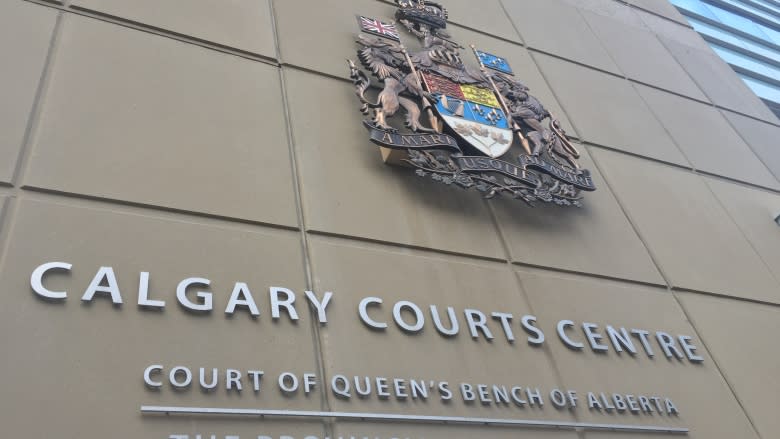Custody battle over Indigenous children ignites cultural tug of war
A southern Alberta First Nation says Canada continues to inflict historical wrongs on Indigenous communities by placing Indigenous children in white homes, pointing to a child custody battle now before the courts in Calgary.
The Siksika Nation is seeking to intervene in the custody case over whether two Indigenous children should permanently remain with their white foster parents or be handed back to their biological family.
The two children, one of whom has confirmed ties to the First Nation east of Calgary, have been living with their foster parents in southern Alberta since 2015, when they were infants. Their biological mother was a minor in provincial care when they were born.
'Immerse them in their cultural traditions'
The foster parents have applied for permanent custody, triggering a court battle. The children's biological aunt wants to care for them in her central Saskatchewan First Nation and immerse them in their cultural traditions.
According to the aunt's lawyer, Mitali Kaul, the children's extended family members were led to believe that they would ultimately take custody.
The Calgary hearing was nearly over on Tuesday when Siksika lawyer Lynsey Mincher applied to intervene in the case, in the hopes she could present evidence on the ramifications the children face by not living in a First Nations community.
Deanna Ledoux, a First Nations advocate who could be called as a witness outlining these effects, said outside of court it's important the "children's contact with family, spirituality and culture is not breached."
"The hope … is that these children are not lost to a system and lost to a non-First Nations family when they do have a family in their community that is capable of providing."
Other lawyers involved in the case have a couple of weeks to respond to the Siksika application before Judge Lynn Cook-Stanhope releases her decision.
The Siksika Nation issued a release this week arguing the case repeats "the historic agenda of Canada that continues to interfere with Indigenous family structures." On behalf of the First Nation, Chief Joseph Weasel Child called on the federal government to change the Family Law Act with regards to consultation on non-Indigenous private guardianship applications and adoptions of Indigenous children within provincial court systems.
In court on Tuesday, lawyers presented closing arguments.
Trauma, grief could result from removal
Sonja Lusignan, the lawyer representing the foster parents, said the children have lived with the white couple largely for their entire lives and would experience trauma, grief and loss if they were removed from the home.
"The court should be very careful when deciding to add another risk factor to these children who have already had a disadvantaged start to life," Lusignan said.
Lusignan said the foster parents have agreed to allow the children's biological aunt to remain in their lives and keep them in touch with their heritage. The foster parents have also studied Indigenous culture and attended a powwow in Siksika.
Children attend foster parents' church
But Kaul, the aunt's lawyer, said these measures aren't nearly enough. She said that while the children have been to one powwow, they have also routinely attended their foster parents' church, which "in no way ensures the children will keep any close ties with their aboriginal culture or maintain an aboriginal identity."
Kaul said the children have remained in regular contact with their biological aunt and have responded to her lovingly during visits.
Terri Mair, a lawyer representing the children on behalf of Alberta's Child and Youth Advocate, recommended that they continue visiting their aunt but remain living with their foster parents "as we have not heard any compelling reasons to move the girls."
Responses to Siksika's application are due in the coming weeks.
- MORE ALBERTA NEWS | Calgary arena deemed structurally unsafe by engineers day before roof collapsed
- MORE ALBERTA NEWS | Orphan well clean-up costs could sting Alberta taxpayers if regulator loses court battle



